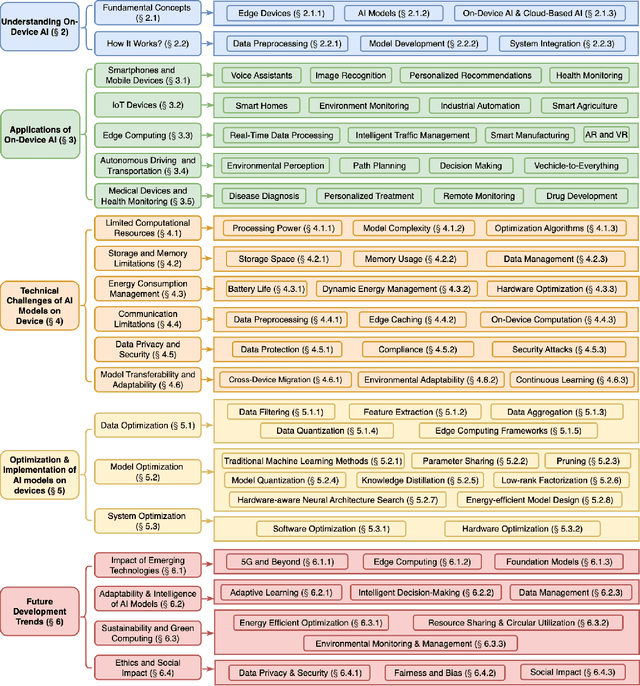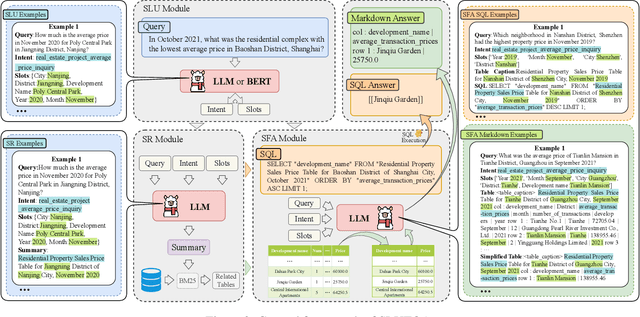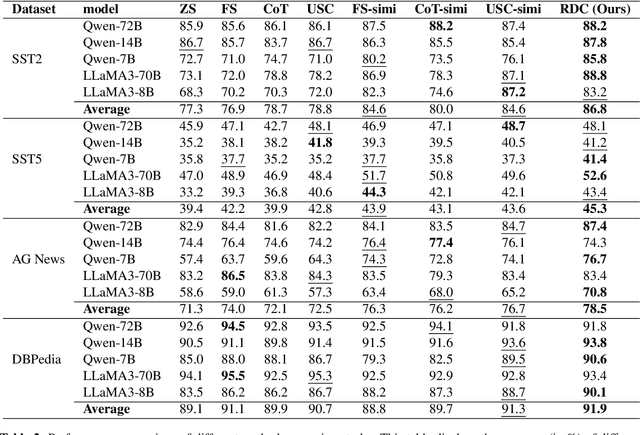Weijia Jia
TLCCSP: A Scalable Framework for Enhancing Time Series Forecasting with Time-Lagged Cross-Correlations
Aug 09, 2025



Abstract:Time series forecasting is critical across various domains, such as weather, finance and real estate forecasting, as accurate forecasts support informed decision-making and risk mitigation. While recent deep learning models have improved predictive capabilities, they often overlook time-lagged cross-correlations between related sequences, which are crucial for capturing complex temporal relationships. To address this, we propose the Time-Lagged Cross-Correlations-based Sequence Prediction framework (TLCCSP), which enhances forecasting accuracy by effectively integrating time-lagged cross-correlated sequences. TLCCSP employs the Sequence Shifted Dynamic Time Warping (SSDTW) algorithm to capture lagged correlations and a contrastive learning-based encoder to efficiently approximate SSDTW distances. Experimental results on weather, finance and real estate time series datasets demonstrate the effectiveness of our framework. On the weather dataset, SSDTW reduces mean squared error (MSE) by 16.01% compared with single-sequence methods, while the contrastive learning encoder (CLE) further decreases MSE by 17.88%. On the stock dataset, SSDTW achieves a 9.95% MSE reduction, and CLE reduces it by 6.13%. For the real estate dataset, SSDTW and CLE reduce MSE by 21.29% and 8.62%, respectively. Additionally, the contrastive learning approach decreases SSDTW computational time by approximately 99%, ensuring scalability and real-time applicability across multiple time series forecasting tasks.
Hybrid Learning for Cold-Start-Aware Microservice Scheduling in Dynamic Edge Environments
May 28, 2025Abstract:With the rapid growth of IoT devices and their diverse workloads, container-based microservices deployed at edge nodes have become a lightweight and scalable solution. However, existing microservice scheduling algorithms often assume static resource availability, which is unrealistic when multiple containers are assigned to an edge node. Besides, containers suffer from cold-start inefficiencies during early-stage training in currently popular reinforcement learning (RL) algorithms. In this paper, we propose a hybrid learning framework that combines offline imitation learning (IL) with online Soft Actor-Critic (SAC) optimization to enable a cold-start-aware microservice scheduling with dynamic allocation for computing resources. We first formulate a delay-and-energy-aware scheduling problem and construct a rule-based expert to generate demonstration data for behavior cloning. Then, a GRU-enhanced policy network is designed in the policy network to extract the correlation among multiple decisions by separately encoding slow-evolving node states and fast-changing microservice features, and an action selection mechanism is given to speed up the convergence. Extensive experiments show that our method significantly accelerates convergence and achieves superior final performance. Compared with baselines, our algorithm improves the total objective by $50\%$ and convergence speed by $70\%$, and demonstrates the highest stability and robustness across various edge configurations.
Empowering Edge Intelligence: A Comprehensive Survey on On-Device AI Models
Mar 08, 2025



Abstract:The rapid advancement of artificial intelligence (AI) technologies has led to an increasing deployment of AI models on edge and terminal devices, driven by the proliferation of the Internet of Things (IoT) and the need for real-time data processing. This survey comprehensively explores the current state, technical challenges, and future trends of on-device AI models. We define on-device AI models as those designed to perform local data processing and inference, emphasizing their characteristics such as real-time performance, resource constraints, and enhanced data privacy. The survey is structured around key themes, including the fundamental concepts of AI models, application scenarios across various domains, and the technical challenges faced in edge environments. We also discuss optimization and implementation strategies, such as data preprocessing, model compression, and hardware acceleration, which are essential for effective deployment. Furthermore, we examine the impact of emerging technologies, including edge computing and foundation models, on the evolution of on-device AI models. By providing a structured overview of the challenges, solutions, and future directions, this survey aims to facilitate further research and application of on-device AI, ultimately contributing to the advancement of intelligent systems in everyday life.
Joint Optimization of Prompt Security and System Performance in Edge-Cloud LLM Systems
Jan 30, 2025



Abstract:Large language models (LLMs) have significantly facilitated human life, and prompt engineering has improved the efficiency of these models. However, recent years have witnessed a rise in prompt engineering-empowered attacks, leading to issues such as privacy leaks, increased latency, and system resource wastage. Though safety fine-tuning based methods with Reinforcement Learning from Human Feedback (RLHF) are proposed to align the LLMs, existing security mechanisms fail to cope with fickle prompt attacks, highlighting the necessity of performing security detection on prompts. In this paper, we jointly consider prompt security, service latency, and system resource optimization in Edge-Cloud LLM (EC-LLM) systems under various prompt attacks. To enhance prompt security, a vector-database-enabled lightweight attack detector is proposed. We formalize the problem of joint prompt detection, latency, and resource optimization into a multi-stage dynamic Bayesian game model. The equilibrium strategy is determined by predicting the number of malicious tasks and updating beliefs at each stage through Bayesian updates. The proposed scheme is evaluated on a real implemented EC-LLM system, and the results demonstrate that our approach offers enhanced security, reduces the service latency for benign users, and decreases system resource consumption compared to state-of-the-art algorithms.
Optimizing Edge AI: A Comprehensive Survey on Data, Model, and System Strategies
Jan 04, 2025Abstract:The emergence of 5G and edge computing hardware has brought about a significant shift in artificial intelligence, with edge AI becoming a crucial technology for enabling intelligent applications. With the growing amount of data generated and stored on edge devices, deploying AI models for local processing and inference has become increasingly necessary. However, deploying state-of-the-art AI models on resource-constrained edge devices faces significant challenges that must be addressed. This paper presents an optimization triad for efficient and reliable edge AI deployment, including data, model, and system optimization. First, we discuss optimizing data through data cleaning, compression, and augmentation to make it more suitable for edge deployment. Second, we explore model design and compression methods at the model level, such as pruning, quantization, and knowledge distillation. Finally, we introduce system optimization techniques like framework support and hardware acceleration to accelerate edge AI workflows. Based on an in-depth analysis of various application scenarios and deployment challenges of edge AI, this paper proposes an optimization paradigm based on the data-model-system triad to enable a whole set of solutions to effectively transfer ML models, which are initially trained in the cloud, to various edge devices for supporting multiple scenarios.
Image Quality Assessment: Investigating Causal Perceptual Effects with Abductive Counterfactual Inference
Dec 22, 2024Abstract:Existing full-reference image quality assessment (FR-IQA) methods often fail to capture the complex causal mechanisms that underlie human perceptual responses to image distortions, limiting their ability to generalize across diverse scenarios. In this paper, we propose an FR-IQA method based on abductive counterfactual inference to investigate the causal relationships between deep network features and perceptual distortions. First, we explore the causal effects of deep features on perception and integrate causal reasoning with feature comparison, constructing a model that effectively handles complex distortion types across different IQA scenarios. Second, the analysis of the perceptual causal correlations of our proposed method is independent of the backbone architecture and thus can be applied to a variety of deep networks. Through abductive counterfactual experiments, we validate the proposed causal relationships, confirming the model's superior perceptual relevance and interpretability of quality scores. The experimental results demonstrate the robustness and effectiveness of the method, providing competitive quality predictions across multiple benchmarks. The source code is available at https://anonymous.4open.science/r/DeepCausalQuality-25BC.
RETQA: A Large-Scale Open-Domain Tabular Question Answering Dataset for Real Estate Sector
Dec 13, 2024



Abstract:The real estate market relies heavily on structured data, such as property details, market trends, and price fluctuations. However, the lack of specialized Tabular Question Answering datasets in this domain limits the development of automated question-answering systems. To fill this gap, we introduce RETQA, the first large-scale open-domain Chinese Tabular Question Answering dataset for Real Estate. RETQA comprises 4,932 tables and 20,762 question-answer pairs across 16 sub-fields within three major domains: property information, real estate company finance information and land auction information. Compared with existing tabular question answering datasets, RETQA poses greater challenges due to three key factors: long-table structures, open-domain retrieval, and multi-domain queries. To tackle these challenges, we propose the SLUTQA framework, which integrates large language models with spoken language understanding tasks to enhance retrieval and answering accuracy. Extensive experiments demonstrate that SLUTQA significantly improves the performance of large language models on RETQA by in-context learning. RETQA and SLUTQA provide essential resources for advancing tabular question answering research in the real estate domain, addressing critical challenges in open-domain and long-table question-answering. The dataset and code are publicly available at \url{https://github.com/jensen-w/RETQA}.
Demonstration Selection for In-Context Learning via Reinforcement Learning
Dec 05, 2024Abstract:Diversity in demonstration selection is crucial for enhancing model generalization, as it enables a broader coverage of structures and concepts. However, constructing an appropriate set of demonstrations has remained a focal point of research. This paper presents the Relevance-Diversity Enhanced Selection (RDES), an innovative approach that leverages reinforcement learning to optimize the selection of diverse reference demonstrations for text classification tasks using Large Language Models (LLMs), especially in few-shot prompting scenarios. RDES employs a Q-learning framework to dynamically identify demonstrations that maximize both diversity and relevance to the classification objective by calculating a diversity score based on label distribution among selected demonstrations. This method ensures a balanced representation of reference data, leading to improved classification accuracy. Through extensive experiments on four benchmark datasets and involving 12 closed-source and open-source LLMs, we demonstrate that RDES significantly enhances classification accuracy compared to ten established baselines. Furthermore, we investigate the incorporation of Chain-of-Thought (CoT) reasoning in the reasoning process, which further enhances the model's predictive performance. The results underscore the potential of reinforcement learning to facilitate adaptive demonstration selection and deepen the understanding of classification challenges.
Enhancing Text Annotation through Rationale-Driven Collaborative Few-Shot Prompting
Sep 15, 2024


Abstract:The traditional data annotation process is often labor-intensive, time-consuming, and susceptible to human bias, which complicates the management of increasingly complex datasets. This study explores the potential of large language models (LLMs) as automated data annotators to improve efficiency and consistency in annotation tasks. By employing rationale-driven collaborative few-shot prompting techniques, we aim to improve the performance of LLMs in text annotation. We conduct a rigorous evaluation of six LLMs across four benchmark datasets, comparing seven distinct methodologies. Our results demonstrate that collaborative methods consistently outperform traditional few-shot techniques and other baseline approaches, particularly in complex annotation tasks. Our work provides valuable insights and a robust framework for leveraging collaborative learning methods to tackle challenging text annotation tasks.
Augmenting Document-level Relation Extraction with Efficient Multi-Supervision
Jul 01, 2024Abstract:Despite its popularity in sentence-level relation extraction, distantly supervised data is rarely utilized by existing work in document-level relation extraction due to its noisy nature and low information density. Among its current applications, distantly supervised data is mostly used as a whole for pertaining, which is of low time efficiency. To fill in the gap of efficient and robust utilization of distantly supervised training data, we propose Efficient Multi-Supervision for document-level relation extraction, in which we first select a subset of informative documents from the massive dataset by combining distant supervision with expert supervision, then train the model with Multi-Supervision Ranking Loss that integrates the knowledge from multiple sources of supervision to alleviate the effects of noise. The experiments demonstrate the effectiveness of our method in improving the model performance with higher time efficiency than existing baselines.
 Add to Chrome
Add to Chrome Add to Firefox
Add to Firefox Add to Edge
Add to Edge